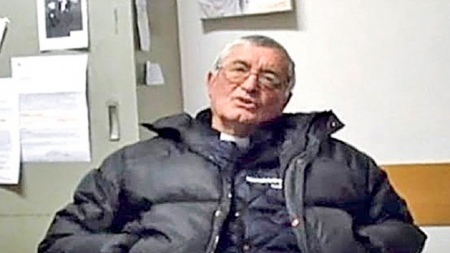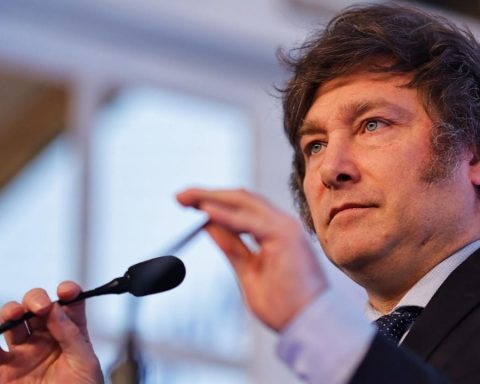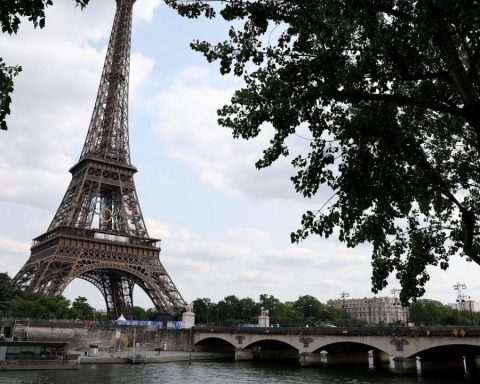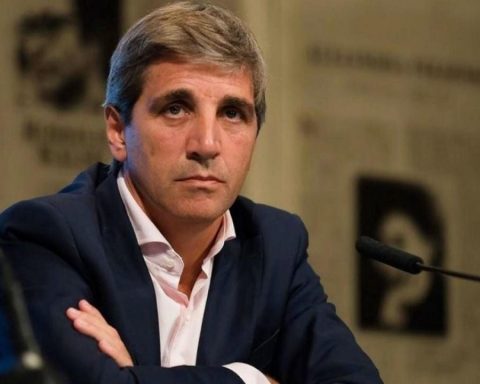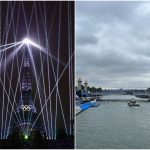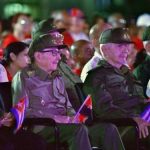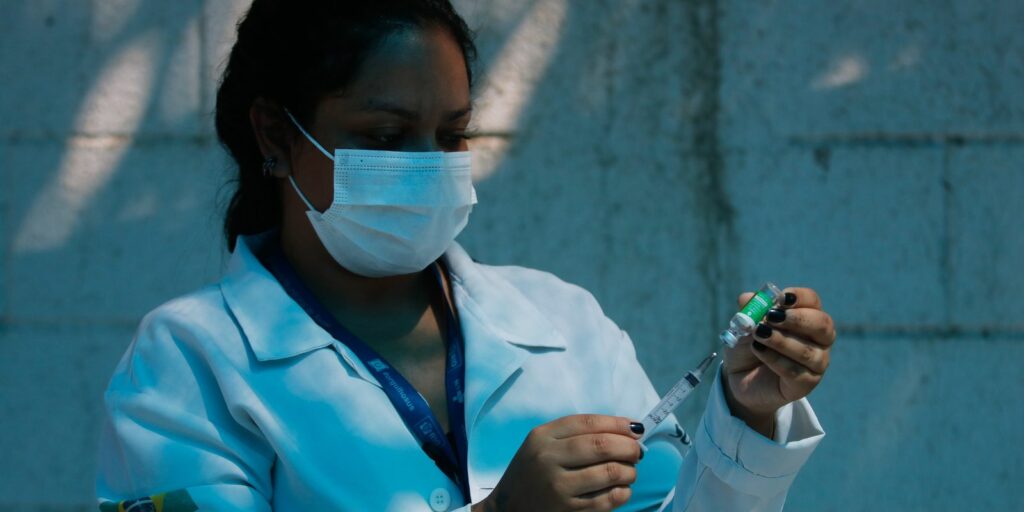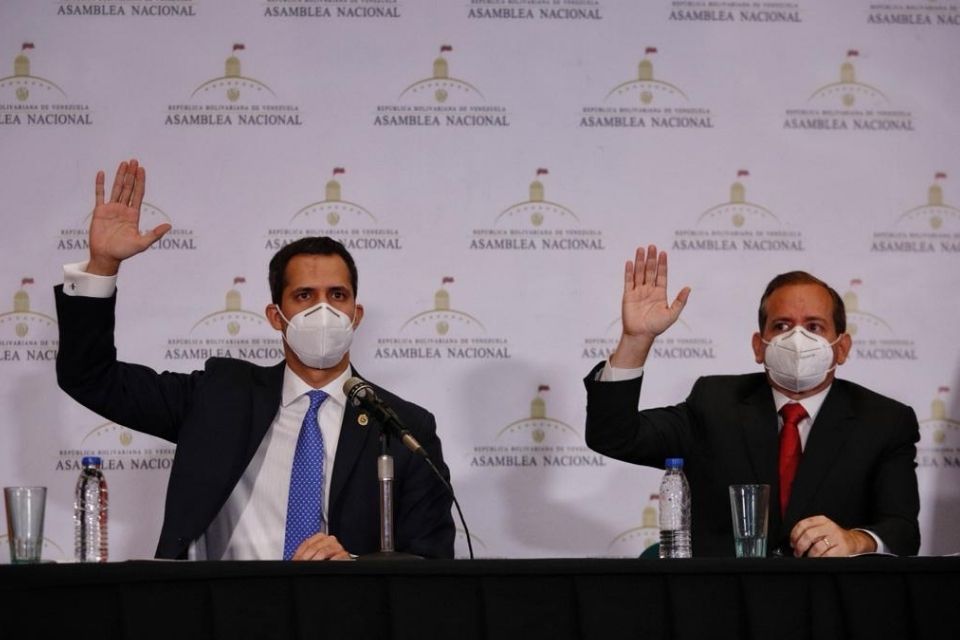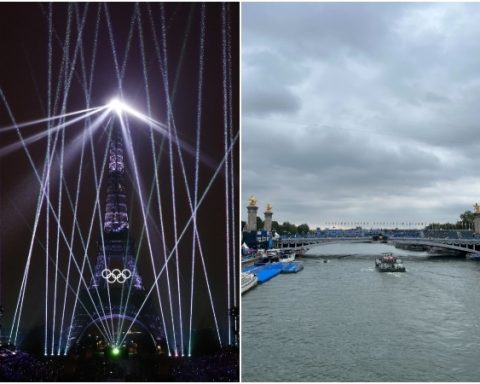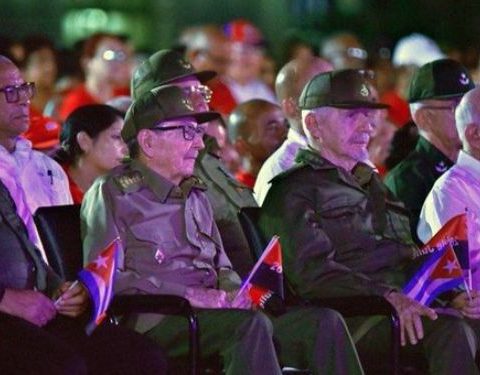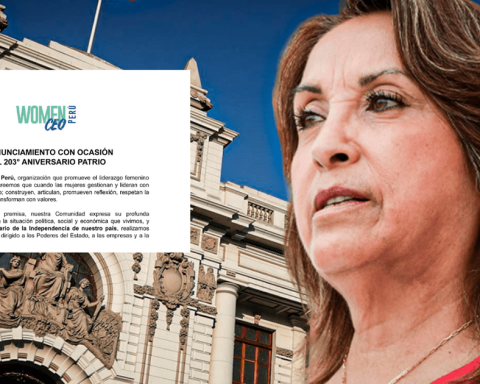The Bologna Court of Appeals resolved this Thursday to convene a new hearing to determine, after carrying out medical examinations, whether the priest and former Army chaplain Franco Reverberi, who is required by the Mendoza Justice accused of crimes against humanity committed during the last dictatorship, can be extradited to Argentina.
The court established that the hearing will be held next Thursday, January 26 with the purpose of determining the status of Reverberi, and for such purposes appointed an official doctor who will contrast the reports of the party that will be presented by the defendant’s defense and the lawyers. who represent the Argentine government in this extradition trial, according to sources with access to this case, who estimated that “by February or March” there could be a decision.
“Today the Bologna Court of Appeals has examined the case, the pronouncement of the Court of Cassation favorable to the extradition of Reverberi. In order to authorize the health conditions of Reverberi, who is of advanced age, for this purpose he held a hearing on January 26 to carry out a medical examination, with a forensic doctor and a cardiologist, to establish if he can travel,” he said in statements to Télam the lawyer Arturo Salerni, who represents the Argentine authorities in this process.

In this sense, the lawyer stressed that at the hearing “the Prosecutor’s Office did not discuss the merits of the extradition because it received the indications of a Court of Cassation that had already ruled favorably on the extradition.”
Reverberi was auxiliary chaplain of the Army’s VIII Mountain Exploration Squad in San Rafael, Mendoza, and is being investigated in the country for having participated in homicides, torture and kidnappings in the clandestine detention center “La Departamental”, which operated in the headquarters of the courts of that city.
The Bologna Court of Appeals had denied the extradition last March, but after a ruling by an instance of Cassation in Italy – the highest court of appeal in that country – a new sentence was ordered.
Reverberi fled to Italy – his native country – in 2011, after the first trial for crimes against humanity began in Mendoza in 2010, where witnesses located him in “La Departamental”.
In 2013, Argentina presented the first extradition request and denounced Reverberi for torture, but the Bologna Court, first (2013), and the Supreme Court of Cassation, later (2014), considered that the presentation was “unfounded”. .
The Bilateral Extradition Treaty signed between Argentina and the European country establishes that, to give rise to the requirement, the crime must be recognized in the legislation of both countries, and at that time there was no criminal offense for torture in Italy.
But starting in 2017, Italian legislation incorporated torture into its Penal Code and in 2020 Argentina started a new request again.

In 2021, the accusation of the murder of the political militant José Guillermo Berón was also included, together with testimonies that stated that they had seen Reverberi in “La Departamental” between July 9, 1976 and September 26, 1976.
These dates coincide with the arrest and subsequent disappearance of Berón, who was kidnapped on August 28, 1976 and, thus, it is stated in the case that the priest “was simultaneously in the clandestine detention center with a person who would later be disappeared “.
For his part, the director of Legal Affairs of the Human Rights Secretariat, Federico Efron, said in statements to Télam that in terms of law “the conditions are in place” for the priest to be sent to Argentina to answer to justice.
At the same time, Efron warned that he foresees “a discussion” around the “health situation” of the priest – he is 84 years old, diabetic and has heart problems – which could lead to a rejection of the request.
The path to extradition
The Bilateral Extradition Treaty signed between Argentina and Italy establishes that, to give rise to the requirement, the crime must be recognized in the legislation of both countries, and at that time there was no criminal offense for torture in Italy.
But starting in 2017, Italian legislation incorporated torture into its Penal Code and in 2020 Argentina started a new request again.
In 2021, the accusation of the murder of the political militant José Guillermo Berón was also included, together with testimonies that stated that they had seen Reverberi in “La Departamental” between July 9, 1976 and September 26, 1976.
These dates coincide with the arrest and subsequent disappearance of Berón, who was kidnapped on August 28, 1976 and, thus, it is stated in the case that the priest “was simultaneously in the clandestine detention center with a person who would later be disappeared “.
“On a matter of law, the conditions are in place for extradition to be granted. But we also foresee a discussion, which may mean that extradition is granted or denied, which is Reverberi’s health situation,” Efron said.
Meanwhile, the plaintiff lawyer of the Permanent Assembly for Human Rights (APDH) in the cases against humanity that the Federal Court of San Rafael is pursuing, Ricardo Ermili, agreed with Efron that “the health problems of age” de Reverberi “could be the reason why extradition is not granted.”
But he pointed out, in dialogue with Télam, that in that case, Argentina could request that the repressor “be tried in Italy and guarantee the presence of the victims.”
“The Cassation ruling is very important because it tells the Bologna Court ‘you went too far in analyzing the evidence provided by the Argentine State in such depth,'” Efron said, explaining that “in no extradition trial is the substance discussed whether the person committed the crime or not”.
But in addition, he pondered that this sentence has considered “torture within crimes against humanity”, and that, therefore, determined “the imprescriptibility” of that crime.
The lawyer celebrated that “from now on extradition can also be granted for the crime of torture” and explained that “this opens up a very important range” for other cases of repressors who are in Italy.
Along these lines, he stressed that on his last trip, on November 7 and 8 to Italy, he held a meeting with the new prosecutor in the case, Antonella Scandelari, and that he assured him that the Prosecutor’s Office “is now going to support” the Argentine request, something that in “the first hearing in March had not happened”.
